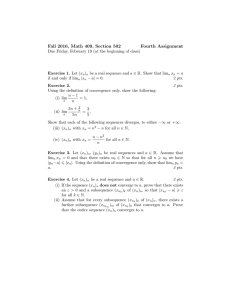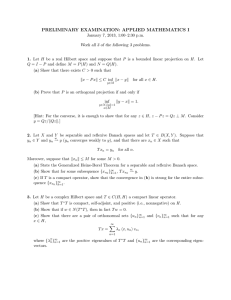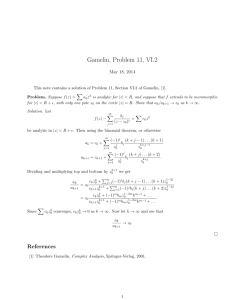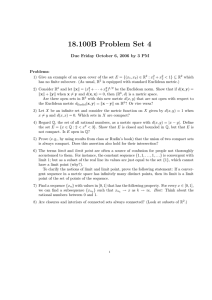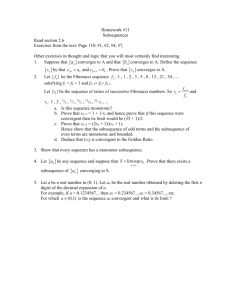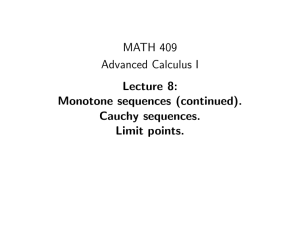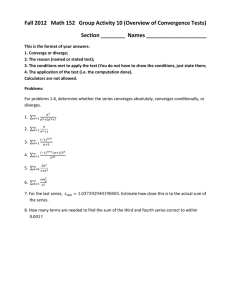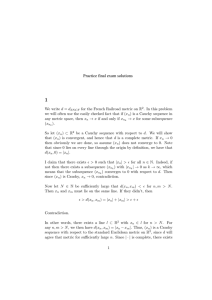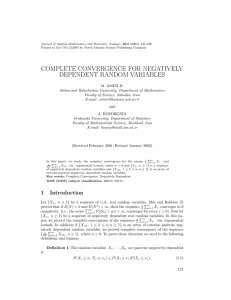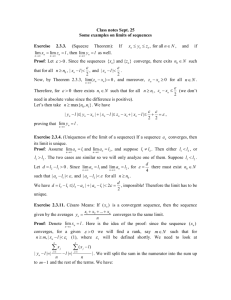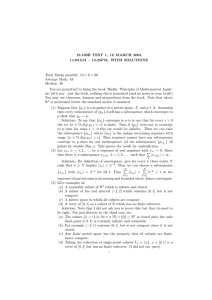Fall 2016, Math 409, Section 502
advertisement
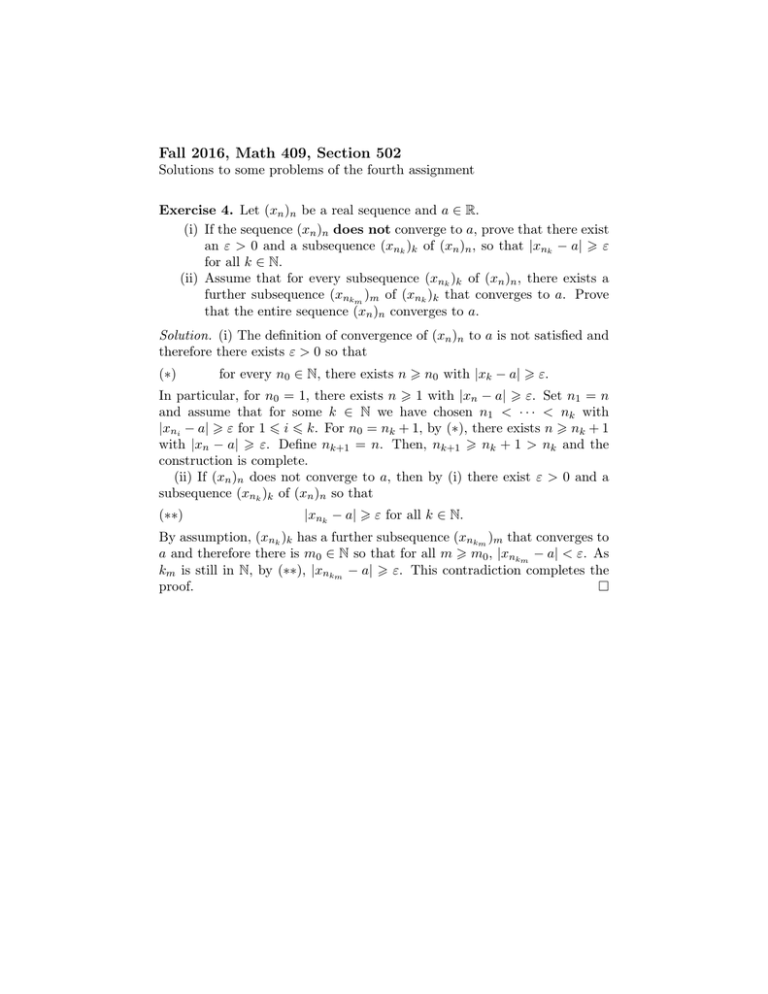
Fall 2016, Math 409, Section 502 Solutions to some problems of the fourth assignment Exercise 4. Let (xn )n be a real sequence and a ∈ R. (i) If the sequence (xn )n does not converge to a, prove that there exist an ε > 0 and a subsequence (xnk )k of (xn )n , so that |xnk − a| > ε for all k ∈ N. (ii) Assume that for every subsequence (xnk )k of (xn )n , there exists a further subsequence (xnkm )m of (xnk )k that converges to a. Prove that the entire sequence (xn )n converges to a. Solution. (i) The definition of convergence of (xn )n to a is not satisfied and therefore there exists ε > 0 so that (∗) for every n0 ∈ N, there exists n > n0 with |xk − a| > ε. In particular, for n0 = 1, there exists n > 1 with |xn − a| > ε. Set n1 = n and assume that for some k ∈ N we have chosen n1 < · · · < nk with |xni − a| > ε for 1 6 i 6 k. For n0 = nk + 1, by (∗), there exists n > nk + 1 with |xn − a| > ε. Define nk+1 = n. Then, nk+1 > nk + 1 > nk and the construction is complete. (ii) If (xn )n does not converge to a, then by (i) there exist ε > 0 and a subsequence (xnk )k of (xn )n so that (∗∗) |xnk − a| > ε for all k ∈ N. By assumption, (xnk )k has a further subsequence (xnkm )m that converges to a and therefore there is m0 ∈ N so that for all m > m0 , |xnkm − a| < ε. As km is still in N, by (∗∗), |xnkm − a| > ε. This contradiction completes the proof.
